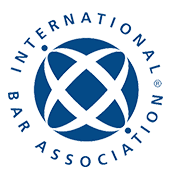
The BETE Trust for Nonresidents
The Blocking Estate Tax Exposure (BETE) Trust is for non-U.S. citizens with assets in the United States. Traditionally, a “blocker corporation” has been advised by international estate planning attorneys, but that solution has come under recent attack through the codification of the economic substance doctrine in Code section 7701(o). If someone has previously advised and employed that strategy for you, call our firm immediately. Because even a foreign corporation requires a business purpose and economic substance to withstand a challenge by the IRS, the International Estate Planning team at Castro & Co. recommends the creation of a BETE Trust, which is a trust that is administered in the United States, managed by a U.S. trustee, holds U.S. assets, but is considered a foreign trust for U.S. gift and estate tax purposes. To better understand how this is possible, allow us to explain.
A U.S. trust is a trust that any U.S. court (federal, state, or local within the 50 states) is able to exercise primary supervision over with regard to its administration and a U.S. person can control all substantial decisions. IRC § 7701(a)(30)(E). A Foreign Trust is any trust that is not a U.S. trust. Thus, by logical deduction, a foreign trust is a trust that (1) a U.S. court does not have primary supervision over or (2) a U.S. person cannot control all substantial decisions. These two prongs have become known as the “court test” and the “control test.” If either one fails, it’s a foreign trust. If a court does not have jurisdiction, it’s a foreign trust. If the trustee is not a U.S. person, it’s a foreign trust.
In the real world, this means that if the Trustee leaves the U.S., it becomes a foreign trust. Likewise, if a court lacks jurisdiction, it’s a foreign trust. Generally, it’s not possible to have a completed gift if the settlor/grantor of the trust is also the trustee; thus, the focus is exclusively on the Court Test.
An “Automatic Migration Provision” is a provision that requires a trust to migrate to another country if a U.S. court attempts to assert jurisdiction or otherwise supervise the administration of the trust directly or indirectly. Because a U.S. court would lack jurisdiction over a trust that has such a provision, the IRS automatically deems any trust that has an Automatic Migration Provision to be a foreign trust under the Code. Treas. Reg. § 301.7701-7(c)(1)(iii), (c)(4)(ii).

-
"Their team provided excellent service, they were professional, very knowledgeable, attentive and provided clear advice/support for my specific situation."
-
The firm truly defines excellence.
Skyler P. -
Very great company to work with.
Michael H.


Trust Instrument Provisions
If a trust instrument states that it is governed exclusively under the laws of a foreign country, a U.S. court would generally lack jurisdiction over the trust. However, there may be situations where an individual does not want another country’s laws to apply. In fact, more often than not, the individual will almost certainly want U.S. law to apply to the trust in order to benefit from the protections of the comprehensive U.S. legal system to safeguard trust assets. Therefore, if the trust included or was amended to include an Automatic Migration Provision that would be effective only during periods of nonresidency for U.S. estate tax purposes, the Court Test would automatically fail and convert into a foreign trust upon the permanent departure of the grantor from the United States. This is true even where the trust is entirely administered in the U.S. and continues to be managed in the U.S. by a U.S. Trustee. The reason is because a court in the United States is not able to exercise primary supervision over the administration of the trust if there’s an automatic migration provision; thus, it fails the court test as a matter of law and is deemed to be a foreign trust of the jurisdiction listed in the automatic migration provision. Treas. Reg. § 301.7701-7(a)(1)(i). Thus, it’s a technically foreign trust that is administered entirely in the U.S. subject to the control and for the benefit of U.S. persons yet deemed to be foreign by virtue of the automatic migration provision.
Most importantly, an interest in a foreign trust does not form part of the U.S. estate regardless of the assets held in the foreign trust. Treas. Reg. §§ 20.2104-1(a)(4), 20.2105-1(e). In other words, there is no look-through rule. The BETE Trust is quite simply invisible for U.S. estate tax purposes. This is what makes the BETE Trust an absolute requirement for anyone in the world that has U.S.-situs assets.
Moreover, foreign trusts are taxed as though they are nonresident alien individuals. IRC § 641(b). Therefore, to the extent it has U.S. source income, it must file a Form 1040NR. For investment real estate rental income, the BETE Trust is permitted to make a Section 871(d) Election to enjoy net-basis taxation on investment real estate rental income. And here’s the best part: Section 684 does not result in a deemed sale upon the transfer to this trust since it’s a grantor trust. IRC § 684(b). Therefore, you’re eligible to implement this at any time without any upfront tax consequences.
The BETE Trust can be administered in the U.S., managed in the U.S. by a U.S. Trustee, enjoy the safety and protection of the U.S. legal system under state law, be funded entirely with only U.S. assets with no deemed sale on the initial funding of the trust, report rental income on a net basis, enjoy preferred rates on any resulting capital gain from real estate, be exempt from non-real estate capital gain, still be deemed a foreign trust, and be entirely exempt from the U.S. estate tax. That is unquestionably the best of ALL worlds.
Schedule a free consultation with one of our International Estate Planning Attorneys today to get free guidance on how this can benefit you.

-
Free Consultations
-
Experienced & Thoroughly Published Attorneys
-
Innovative Solutions
-
Sophisticated Global Tax Planning
Complete our form below or call us at (833) 227-8761.
-
![Business Interest Deduction: A Guide for Business Owners | Castro & Co. [2024] Photo Business Interest Deduction: A Guide for Business Owners | Castro & Co. [2024] Photo](data:image/gif;base64,R0lGODlhAQABAIAAAAAAAAAAACH5BAEAAAAALAAAAAABAAEAAAICRAEAOw==) Business Interest Deduction: A Guide for Business Owners | Castro & Co. [2024]Read More
Business Interest Deduction: A Guide for Business Owners | Castro & Co. [2024]Read More -
 Drug Use May Constitute Reasonable Cause for the Avoidance of PenaltiesRead More
Drug Use May Constitute Reasonable Cause for the Avoidance of PenaltiesRead More -
![What Can You Do If You Can't Pay Your Business Taxes | Castro & Co. [2024] Photo What Can You Do If You Can't Pay Your Business Taxes | Castro & Co. [2024] Photo](data:image/gif;base64,R0lGODlhAQABAIAAAAAAAAAAACH5BAEAAAAALAAAAAABAAEAAAICRAEAOw==) What Can You Do If You Can't Pay Your Business Taxes | Castro & Co. [2024]Read More
What Can You Do If You Can't Pay Your Business Taxes | Castro & Co. [2024]Read More -
![Taxes for Etsy Shop Owners | Castro & Co. [2024] Photo Taxes for Etsy Shop Owners | Castro & Co. [2024] Photo](data:image/gif;base64,R0lGODlhAQABAIAAAAAAAAAAACH5BAEAAAAALAAAAAABAAEAAAICRAEAOw==) Taxes for Etsy Shop Owners | Castro & Co. [2024]Read More
Taxes for Etsy Shop Owners | Castro & Co. [2024]Read More -
![How Much Should Your Small Business Pay In Taxes? | Castro & Co. [2024] Photo How Much Should Your Small Business Pay In Taxes? | Castro & Co. [2024] Photo](data:image/gif;base64,R0lGODlhAQABAIAAAAAAAAAAACH5BAEAAAAALAAAAAABAAEAAAICRAEAOw==) How Much Should Your Small Business Pay In Taxes? | Castro & Co. [2024]Read More
How Much Should Your Small Business Pay In Taxes? | Castro & Co. [2024]Read More -
 Who Said Depreciation Was Mandatory?Read More
Who Said Depreciation Was Mandatory?Read More -
![Small Business Taxes in Texas Overview | Castro & Co. [2024] Photo Small Business Taxes in Texas Overview | Castro & Co. [2024] Photo](data:image/gif;base64,R0lGODlhAQABAIAAAAAAAAAAACH5BAEAAAAALAAAAAABAAEAAAICRAEAOw==) Small Business Taxes in Texas Overview | Castro & Co. [2024]Read More
Small Business Taxes in Texas Overview | Castro & Co. [2024]Read More -
![How Can A Small Business Lower Their Tax Bill? | Castro & Co. [2024] Photo How Can A Small Business Lower Their Tax Bill? | Castro & Co. [2024] Photo](data:image/gif;base64,R0lGODlhAQABAIAAAAAAAAAAACH5BAEAAAAALAAAAAABAAEAAAICRAEAOw==) How Can A Small Business Lower Their Tax Bill? | Castro & Co. [2024]Read More
How Can A Small Business Lower Their Tax Bill? | Castro & Co. [2024]Read More











![Business Interest Deduction: A Guide for Business Owners | Castro & Co. [2024] Photo Business Interest Deduction: A Guide for Business Owners | Castro & Co. [2024] Photo](/cms/thumbnails/34/385x188/images/blog/is-interest-paid-to-the-irs-tax-deductible-for-business.2312140842331.jpg)

![What Can You Do If You Can't Pay Your Business Taxes | Castro & Co. [2024] Photo What Can You Do If You Can't Pay Your Business Taxes | Castro & Co. [2024] Photo](/cms/thumbnails/34/385x188/images/blog/what-can-I-do-if-I-cant-pay-my-business-taxes.2312121459472.jpg)
![Taxes for Etsy Shop Owners | Castro & Co. [2024] Photo Taxes for Etsy Shop Owners | Castro & Co. [2024] Photo](/cms/thumbnails/34/385x188/images/blog/taxes-for-etsy-shop-owners.2312120921406.jpg)
![How Much Should Your Small Business Pay In Taxes? | Castro & Co. [2024] Photo How Much Should Your Small Business Pay In Taxes? | Castro & Co. [2024] Photo](/cms/thumbnails/34/385x188/images/blog/how-much-will-my-small-business-pay-in-taxes.2312111222374.jpg)

![Small Business Taxes in Texas Overview | Castro & Co. [2024] Photo Small Business Taxes in Texas Overview | Castro & Co. [2024] Photo](/cms/thumbnails/34/385x188/images/blog/small-business-taxes-in-texas.2312071352450.jpg)
![How Can A Small Business Lower Their Tax Bill? | Castro & Co. [2024] Photo How Can A Small Business Lower Their Tax Bill? | Castro & Co. [2024] Photo](/cms/thumbnails/34/385x188/images/blog/how-can-a-small-business-lower-thier-taxes.2312051359092.jpg)